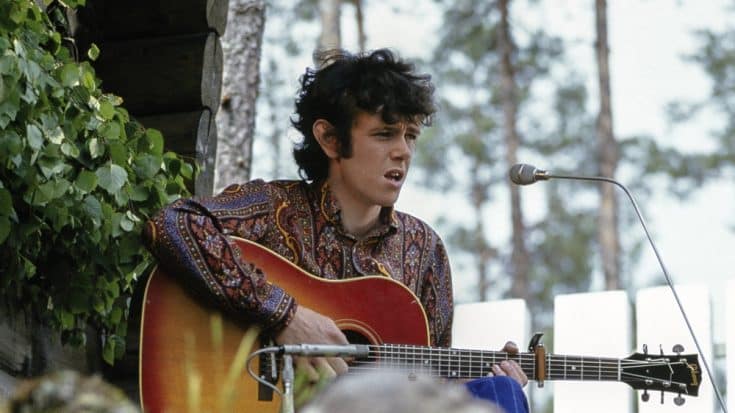How Come “Hurdy Gurdy Man” Became Led Zeppelin’s First Song

via Donovan / Wikimedia Commons
The story of Led Zeppelin’s earth-shattering riffs and Robert Plant’s soaring vocals is etched in rock history. But what if I told you their sonic alchemy began not in their own fiery crucible, but in a session for a completely different artist?
Led Zeppelin’s roots twist and turn in a surprising way, tangling with folk icon Donovan’s psychedelic masterpiece “Hurdy Gurdy Man”. This unlikely collaboration, featuring future Led Zeppelin members Jimmy Page and John Paul Jones, not only breathed life into Donovan’s song but also, some might argue, planted the seeds for Led Zeppelin’s soon-to-be legendary sound.
Donovan’s “Hurdy Gurdy Man” stood out from his usual folk fare, venturing into heavier, more experimental territory. This shift might not have been possible without the presence of Page, known for his blues-rock influences, and Jones, a versatile bassist and keyboardist.
Their contributions, particularly Page’s now-iconic guitar work, arguably pushed the boundaries of rock music at the time.
The Birth of a Heavy Folk Anthem
Donovan, a singer known for both gentle folk tunes (“Catch the Wind”) and psychedelic explorations (“Sunshine Superman”), surprised fans with the heavier sound of “Hurdy Gurdy Man”. This departure from his usual style came about thanks to some unexpected collaborators in the future Led Zeppelin members.
In a 2008 interview, Donovan himself credited the song’s power to the studio session involving him, Page, and Jones. He even mentioned the possible involvement of Led Zeppelin drummer John Bonham.
Donovan explains his desire for a heavier sound, influenced by guitarists like The Kinks’ Dave Davies, Jimi Hendrix, and The Who’s Pete Townshend. Originally, Donovan even hoped to get Hendrix on the track, but scheduling conflicts forced a change of plans. It was then that producer Mickie Most suggested Jimmy Page, setting the stage for a sonic shift.
Did Donovan Actually Influence Jimmy Page?
Donovan also sheds light on Page’s approach to “Hurdy Gurdy Man”. According to Donovan, the musical director John Cameron gave Page specific instructions: “All you’ve got to do is listen to Donovan’s guitar. Although it’s acoustic, the way he’s hitting it is the way the power-chords would go.”
Donovan further suggests Page took this approach and ran with it. “So I guess Page listened,” he said. “Jimmy added power and pagan rock. To this day, everyone wants that sound. And John Paul Jones arranged it, he gave the shapes to those sounds.”
Here, Donovan credits Page for adding the song’s signature heavy guitar sound and “pagan rock” elements, which would become Led Zeppelin trademarks. John Paul Jones’ arrangement then brought these elements together into a cohesive whole.
Finding Success in the Charts
“Hurdy Gurdy Man” proved to be a strong commercial performer for Donovan, becoming his final top 5 hit in the United States. The song’s success extended to the album of the same name, The Hurdy Gurdy Man, which reached No. 20 on the Billboard 200 and spent 20 weeks on the chart. The album also yielded another hit single, “Jennifer Juniper”, which peaked at No. 29 and remained on the chart for nine weeks.
Across the pond, “Hurdy Gurdy Man” performed even better, climbing to No. 4 in the United Kingdom charts and staying there for 10 weeks. Interestingly, unlike in the U.S., the album itself didn’t make a significant impact on the UK charts. However, “Jennifer Juniper” found similar success there, reaching No. 5 and staying on the chart for 11 weeks.
Despite not being the album’s title track, “Hurdy Gurdy Man” stands as a landmark for both Donovan’s career and the early sounds of Led Zeppelin, achieving commercial success while hinting at the musical direction Led Zeppelin would soon take.












